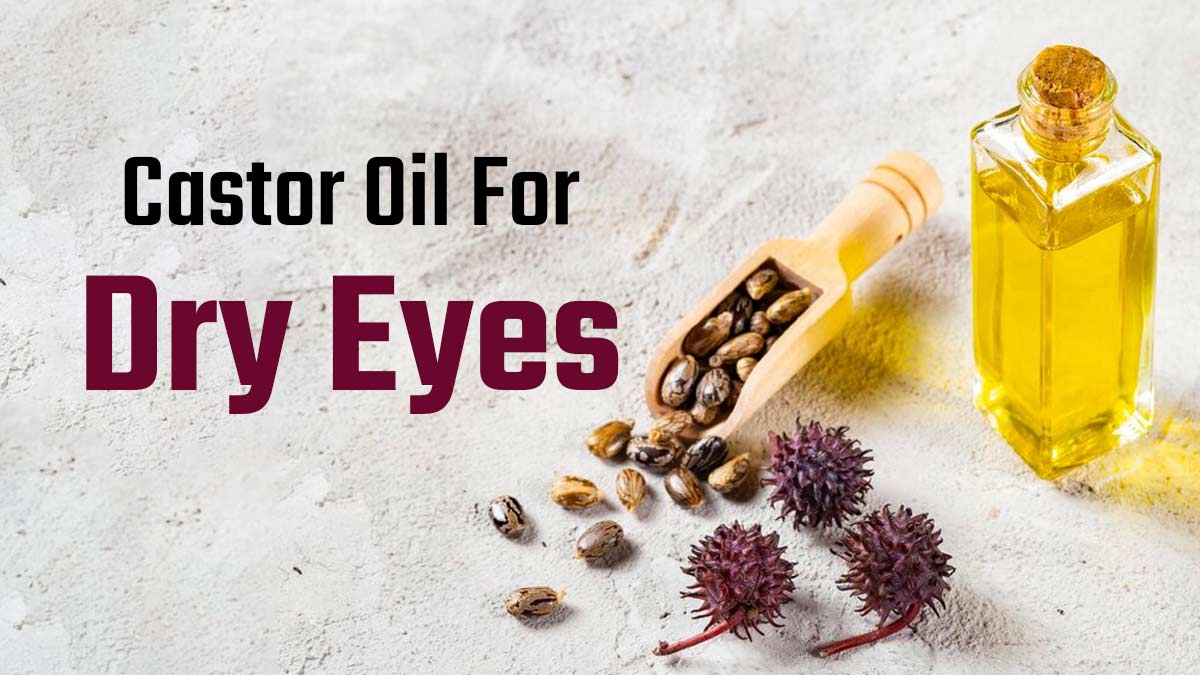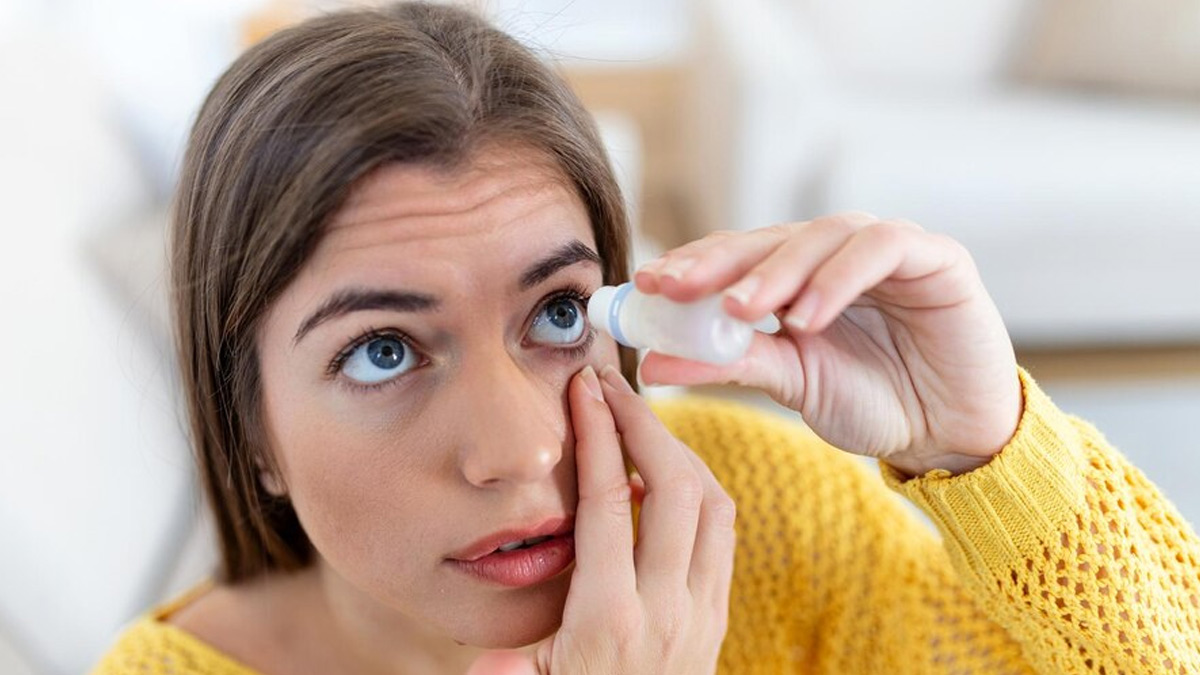
Do you experience irritation, burning, and excessive tearing in your eyes? If yes, you may be dealing with a health condition known as dry eyes. It occurs when your eyes do not produce enough tears to stay wet, leading to symptoms like discomfort, itching, and a gritty feeling. While a doctor's visit is important, however, home remedies, such as castor oil can also help in managing the symptoms. In this article, we list the benefits, proper usage, and precautions associated with using castor oil for dry eyes.
Table of Content:-
Benefits of Castor Oil for Dry Eyes
Castor oil, derived from the seeds of the castor plant, is well known for its therapeutic properties. When it comes to dry eyes, castor oil offers several benefits:

Moisturising Properties
Castor oil is rich in fatty acids, particularly ricinoleic acid, which possesses moisturising and anti-inflammatory properties. Applying castor oil to the eyes can help lubricate the surface of the eyes, reducing dryness and discomfort.
Enhanced Tear Film Stability
The tear film, composed of water, oils, and mucus, helps maintain eye lubrication and clarity. Castor oil can improve tear film stability by replenishing the lipid layer, preventing excessive evaporation of tears, and reducing tear break-up time.
Also Read: Pollution Can Cause Dry Eyes: Here's How to Protect Your Eyes

Anti-Inflammatory Effects
Inflammation often accompanies dry eye syndrome. Castor oil's anti-inflammatory properties can help alleviate inflammation in the eyes, providing relief from redness, irritation, and swelling.
In a study published in the Journal of Veterinary Medical Science in 2014, researchers studied the effects of applying a solution comprising castor oil and sodium hyaluronate on the eyes of pigs. The findings revealed that this combination exhibited a protective impact against dryness of the eyes, prompting the researchers to suggest its use as an artificial tear solution.
How to Use Castor Oil for Dry Eyes

Using castor oil for dry eyes requires proper application techniques to ensure safety and effectiveness:
- Choose High-Quality Castor Oil: You should opt for organic and cold-pressed castor oil, which is free from additives or preservatives. High-quality castor oil ensures purity and minimises the risk of adverse reactions.
- Wash Hands Thoroughly: You should wash your hands before applying castor oil to the eyes to remove any dirt or debris.
- Use a Clean Dropper or Applicator: To avoid contamination, use a clean dropper or applicator to dispense the castor oil. Also, avoid direct contact between the dropper tip and the eyes to prevent infection.
- Apply a Small Amount: Place one or two drops of castor oil onto a clean fingertip or a sterile cotton swab. Gently apply the oil along the lower eyelid, starting from the inner corner and moving towards the outer corner of the eye. Blink several times to spread the oil evenly over the surface of the eye.
- Use as Directed: Follow the recommended dosage and frequency of use as advised by your healthcare provider or eye care specialist. This is because overuse of castor oil may lead to blurred vision or other adverse effects.
Also Read: Protecting Eyes From Blue Light: Expert Explains Impact Of Blue Light And Tips To Protect Your Eyes
Precautions and Considerations
While castor oil can offer relief for dry eyes, it's essential to exercise caution and consider the following precautions:
Consult with a Healthcare Professional
Before using castor oil or any other home remedy for dry eyes, it is necessary to consult with your healthcare provider or ophthalmologist. They can assess your condition, provide personalised recommendations, and ensure compatibility with existing treatments.
Avoid Contamination
You should use sterile applicators and refrain from sharing eye drops or ointments with others to prevent the spread of infection.
Monitor for Adverse Reactions
While rare, some individuals may experience allergic reactions or sensitivity to castor oil. In such cases, discontinue use and seek medical attention if you experience severe irritation, redness, or swelling of the eyes.
Consider Underlying Conditions
Dry eyes can be symptomatic of underlying health conditions, such as blepharitis, meibomian gland dysfunction, or autoimmune disorders. Hence, addressing the root cause of dry eye syndrome is essential for effective management and long-term relief.
[Disclaimer: This article contains information for informational purposes only, hence, we advise you to consult your expert if you face any eye issues for proper diagnosis and treatment.]
Also watch this video
Read Next
Oral Cavities: Here Are 7 Effective Ways To Prevent Oral Cavities At Home Without Medication
How we keep this article up to date:
We work with experts and keep a close eye on the latest in health and wellness. Whenever there is a new research or helpful information, we update our articles with accurate and useful advice.
Current Version